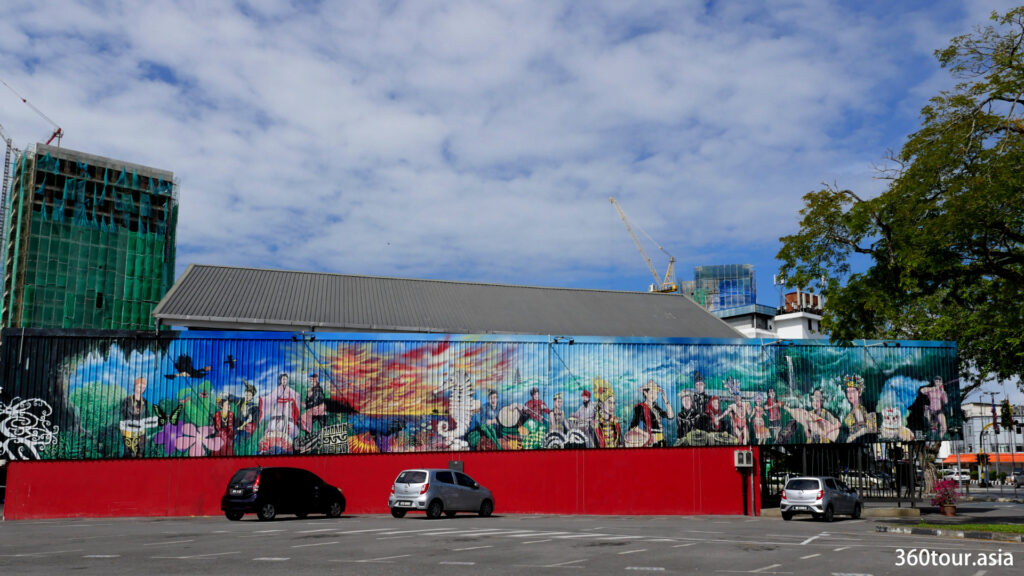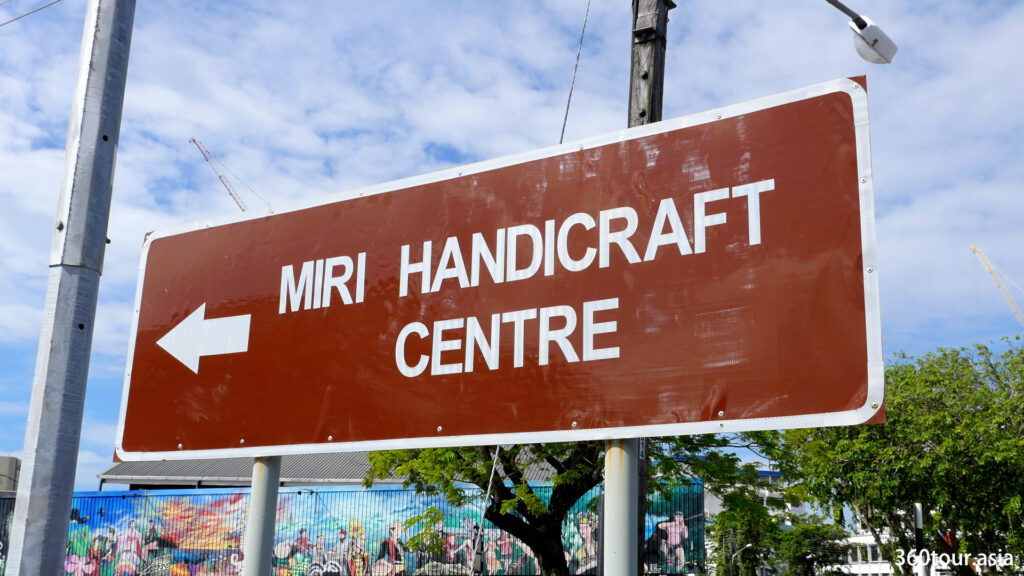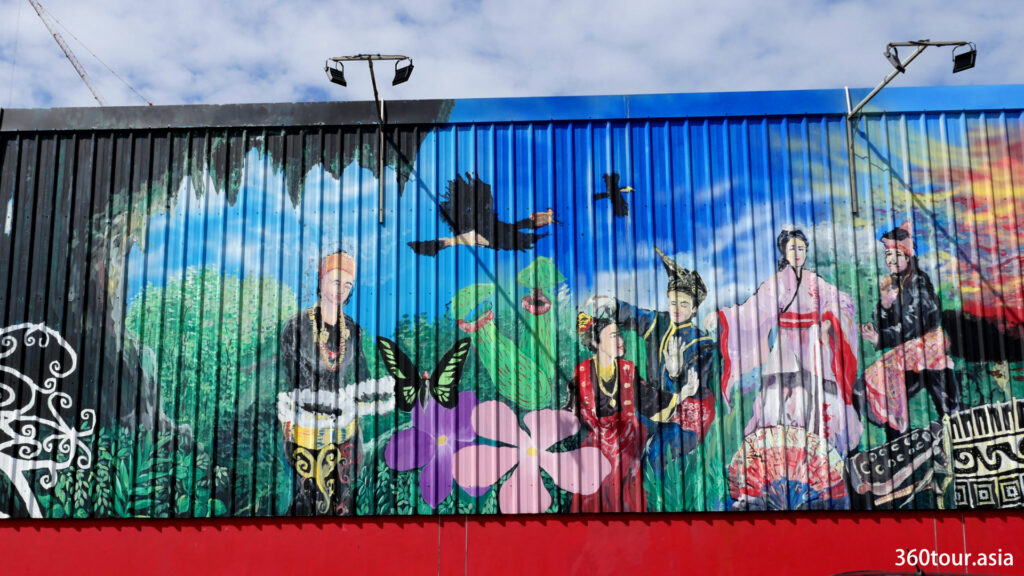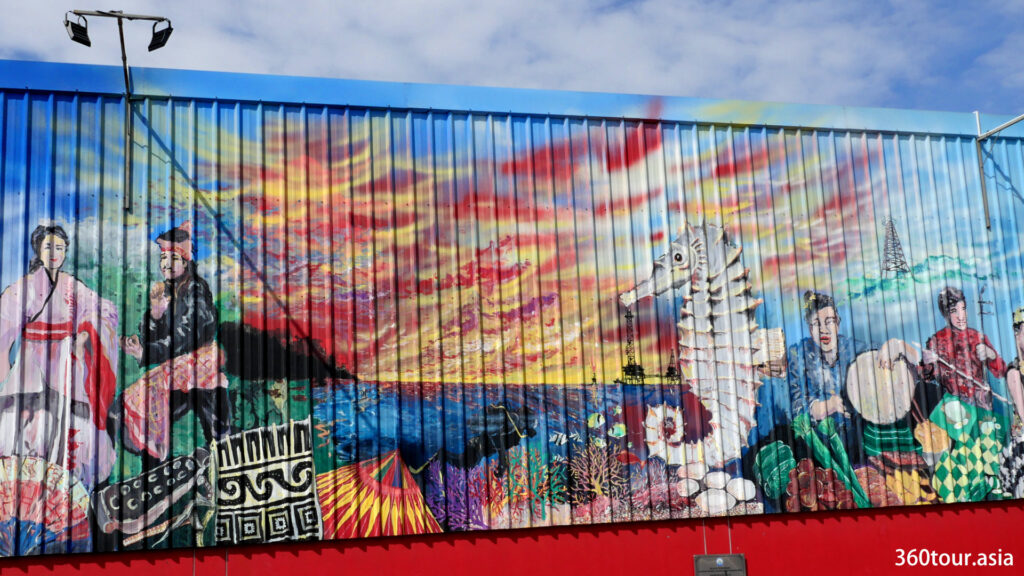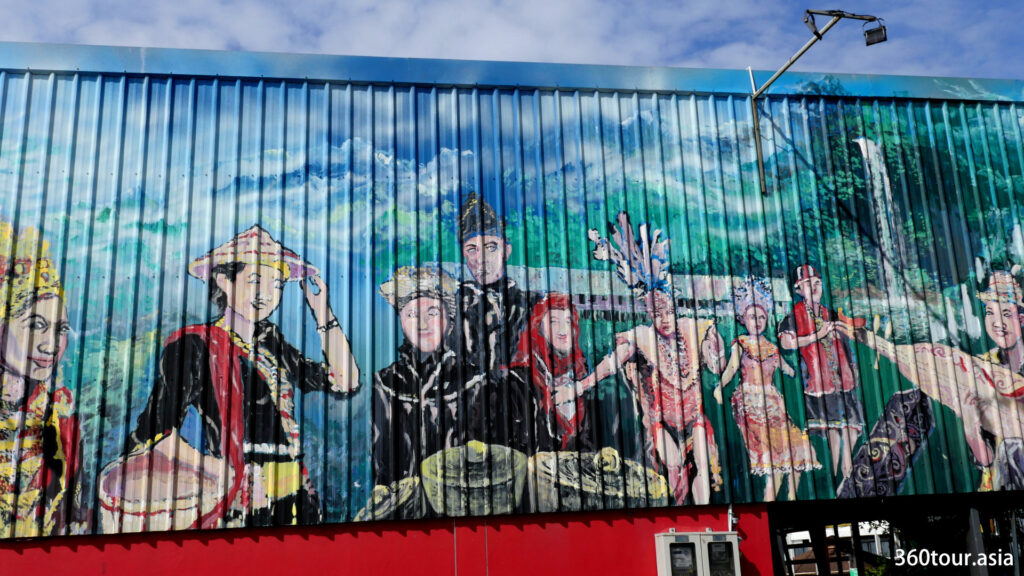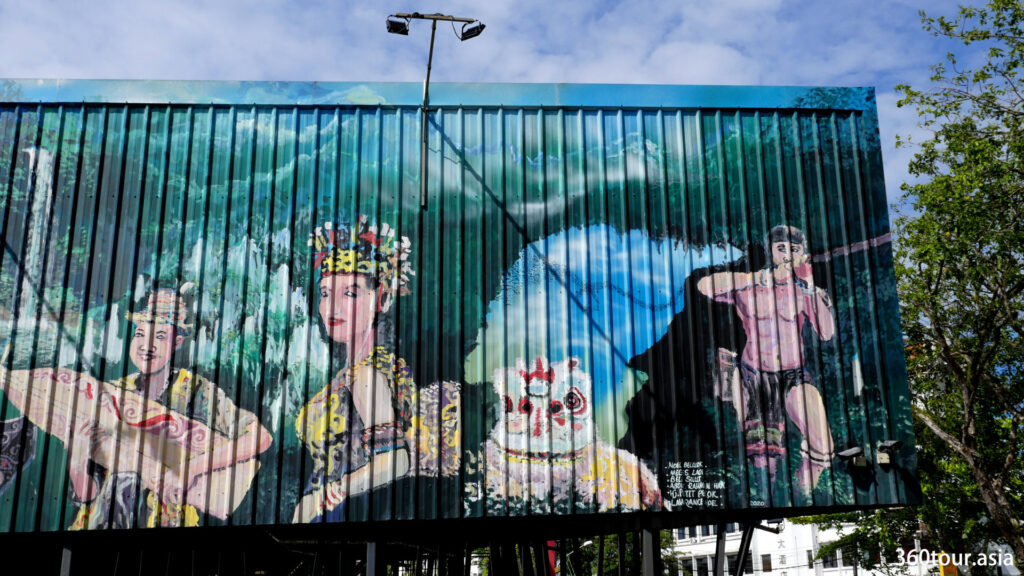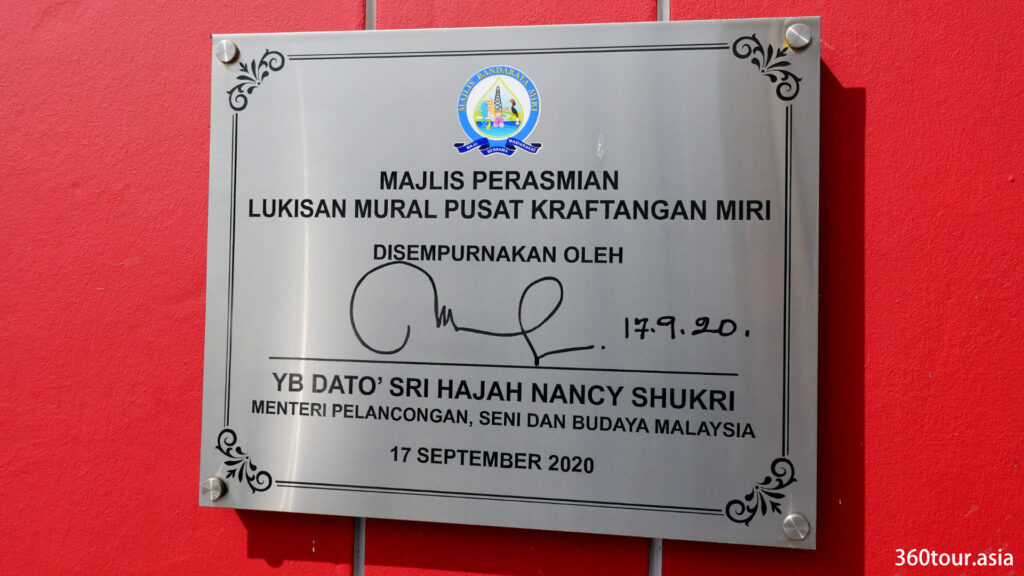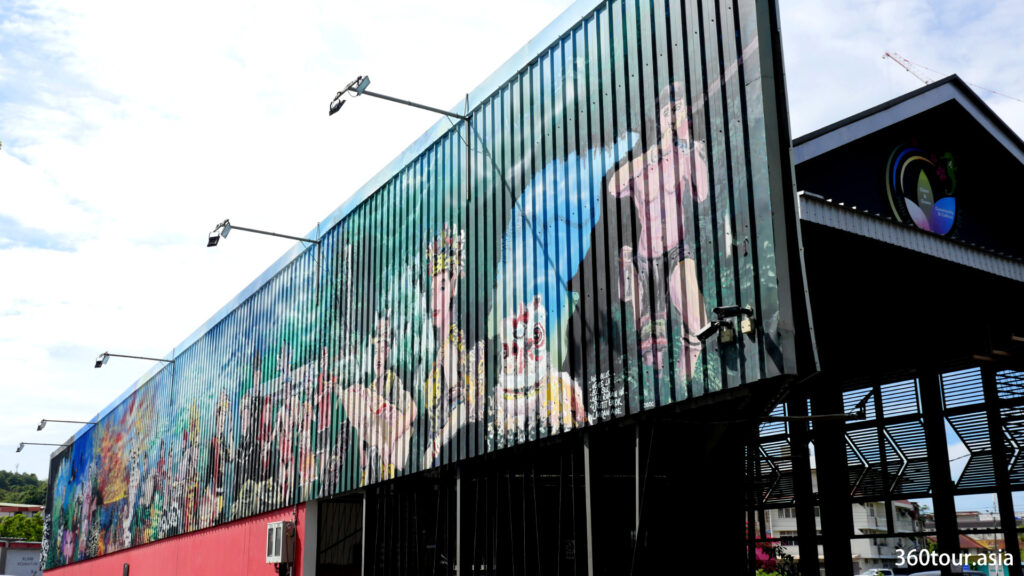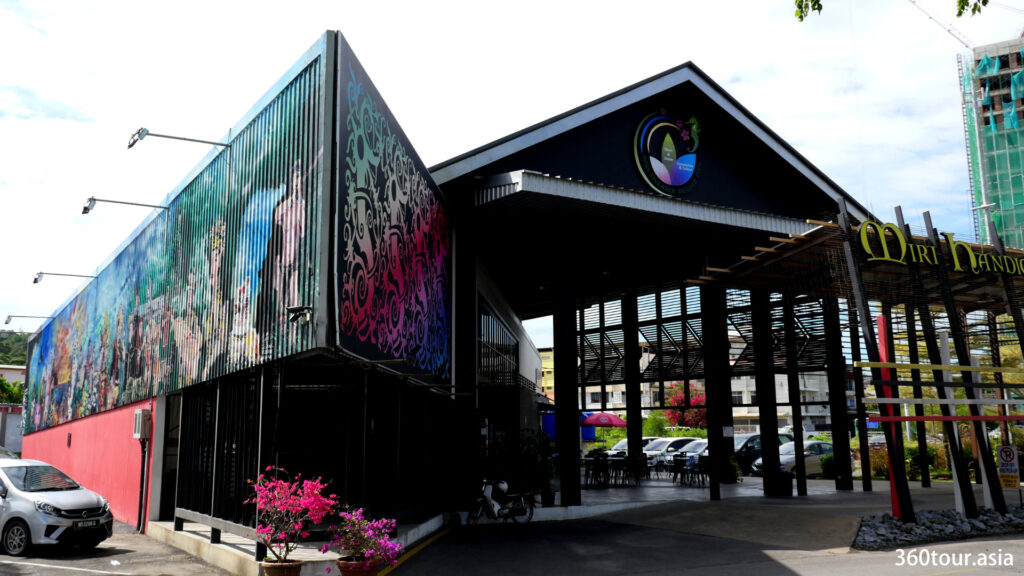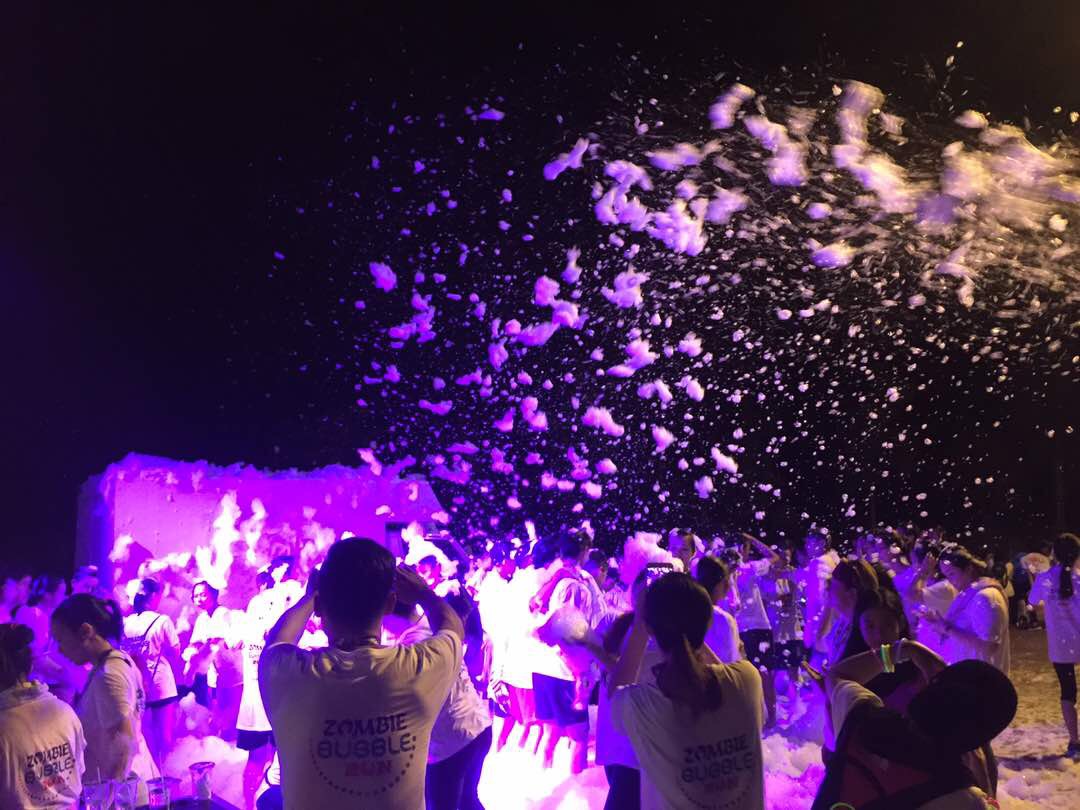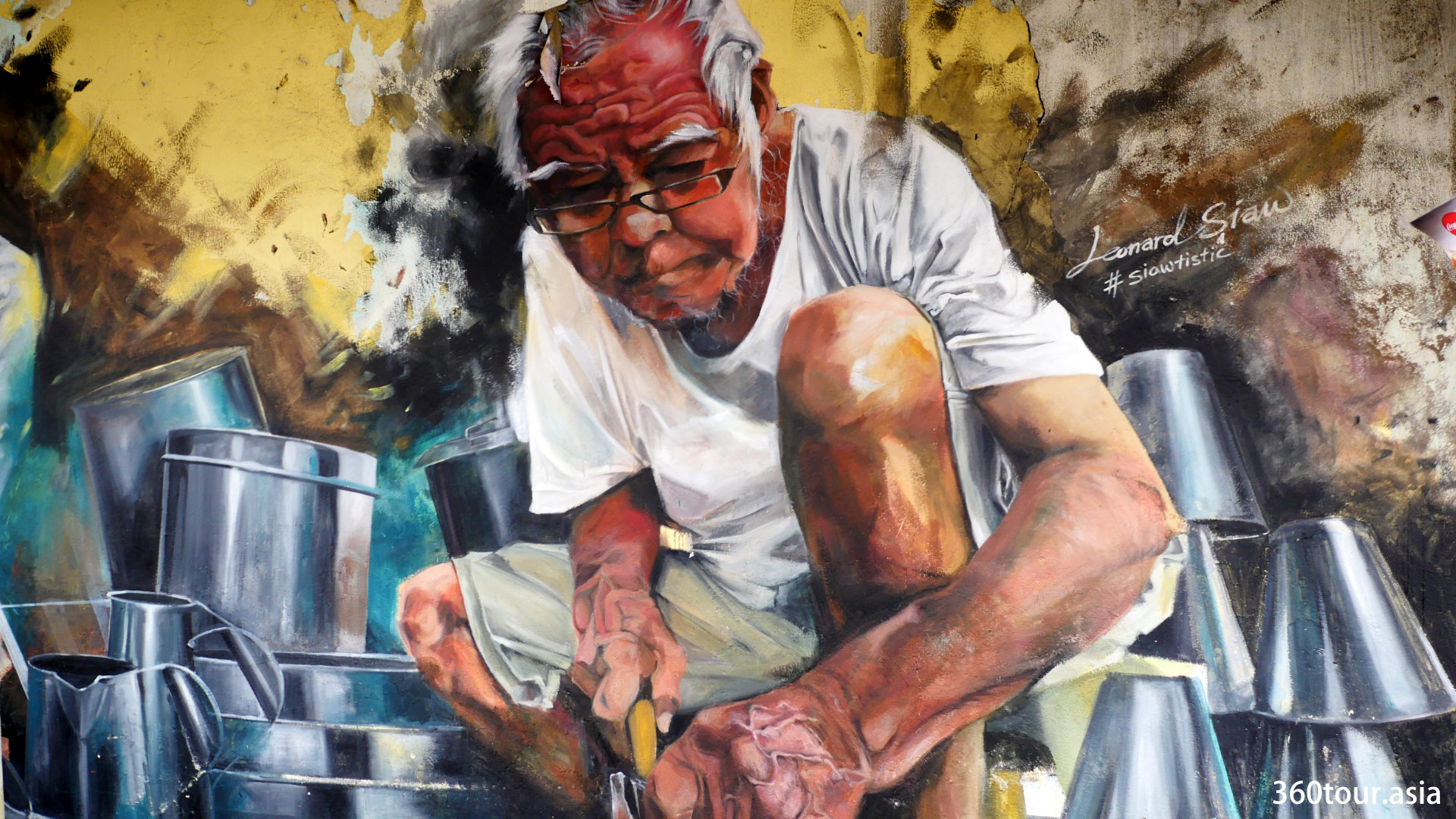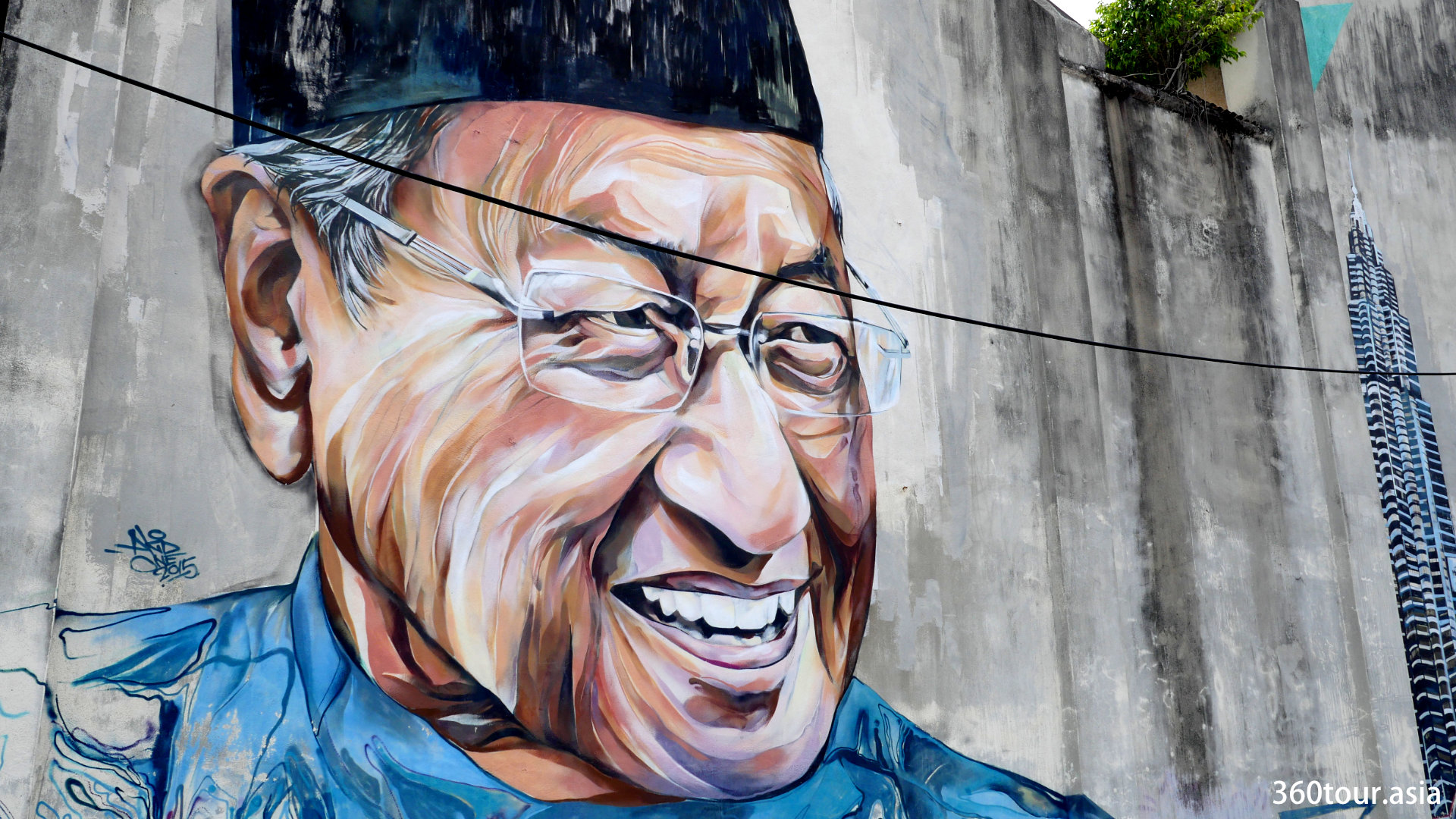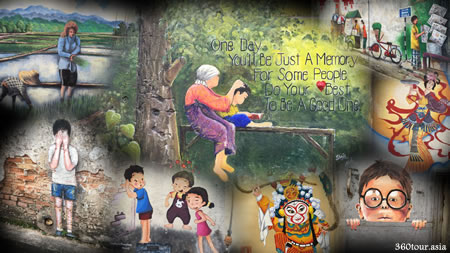When walking around Miri City city center, visitor can easily noticed the longest wall mural in the city. It is drawn on the wall beside the Miri Handicraft Center. The mural was drawn in year 2020 and depict the diverse multiracial and multicultural element of Sarawak.
Total Dimension of the mural : 33 meters by 3.5 meters
Wall mural location : Outside wall of Miri Handicraft Center
Address : Miri Handicraft Centre, 98000 Miri, Sarawak
Latitude : 4.3962049
Longitude : 113.991104
Open map with : [Waze] [Google Map] [Bing Map] [HERE Map]
Mural Artist : The mural is drawn by local artists Noel Belulok and his son Lawrence Noel, Meges Laoi, Bill Suut, Abdul Rahman Han, and Putit Pikok.
Mural Drawn Duration : 20th August 2020 – 15th September 2020
Official launching of the attraction : 17th September 2020 by federal Minister of Tourism, Arts and Culture Datuk Seri Nancy Shukri
At the far left there is local art motive of the native people of Sarawak, featuring curvy lines that is interlinked. It is a motive that is usually seen in body tatoo or decoration motive at ornaments, doorways, walls and clothing.
The cave and the forest at the back featuring the cave opening view of the Niah Cave of the Niah National Park, Sarawak. It is a impressive cave and a important archeological sites. The Cave is surrounded by pristine primary rain forest.
The lady with the feather ornament in hand is the famous Hornbill Dance (Datun Julud) by local native Orang Kenyah tribe. The dance features traditional beads clothing with striking yellow-red motive with black background, and both of the hands holding a bowl shaped feather ornament, which all are the feature of the Sarawak bird – Hornbill.
The butterfly featured in the mural is called Rajah Brooke’s birdwing butterfly (Trogonoptera Brookiana) which it gets its name in honour of the White Rajah of Sarawak, Sir James Brooke.
Two hornbill flying on the sky depict the freedom and unique environment of Sarawak. The hornbill species depicted in the mural is the Rhinoceros Hornbill, which is also the Sarawak state’s bird.
The pitcher plants and wild orchid featured in the mural showing the vast biodiversity of Borneo.
The dance couples featured in the mural showing vast diverse cultural present in Sarawak. Other items shown including Chinese handheld fan for fan dance, congkak marble game, keris knife and local motive weaved baskets.
The second part of the mural depict the unique eco-tourism and economy of Miri City.
The amazing sunset view of the tanjung lobang beach represent Miri City as a city thriving beside the vast South China Sea.
The grand old lady oil well on the Canada Hill Miri and the off shore oil rigs which represent the origin of Miri City in the past as a oil town.
There is also feature of divers and beautiful coral reef that represent the famous diving paradise at its Sibuti Coral Reefs National Park where divers can dive and indulge in amazing view of the biodiversity of the coral reef.
The seahorse featured in the mural can also be found in the coral reef dive. Seahorse is the mascot of Miri City and it represent peace and harmony.
The third part of the mural featuring mostly different ethnicity and culture of Sarawak. Other than the main ethnic group, Sarawak had more than 40 sub-ethnic group where each of them have own distinct language, culture and lifestyle, and yet all living together in harmony. A perfect description of Sarawak being a state of Unity in Diversity. Each unique traditional dress of all ethnic group all tells a different story.
At the background there is feature of a Sarawak Longhouse, which is a traditionally build continuous teres like bamboo and wood housing by the locals. The Longhouse is commonly seen in the rural area and the main concept is “all is one”, where everyone from the same village can all stay in one same Longhouse in harmony with distinct common halls that everyone can meet each other everyday.
The waterfall depicted in the mural is the Lambir Hill waterfall of the Lambir Hill National Park, Miri.
The multi-ethnicity and multicultural nature of Sarawak is featured in whole wall mural.
The background also feature two amazing natural stone formation that can be found in Mulu National Park, Sarawak. The tall grey stone spikes is a amazing natural stone formation which is known as karst formation where the soft limestone being eroded away. It is known as Pinnacles of Gunung Mulu. Another is at the exit of Mulu cave where the stone wall appears like the silhouette of Abraham Lincoln. The mural also show the feature of amazing swarm of bat trails can be found at Mulu Cave and Deer Cave. Millions of bats flock in a stream like pattern, twisting and curving in the sky at the evening when the bats are on their journey for feeding.
After visiting the wall mural, visitors can visit the Miri Handicraft Center for various amazing local handicraft.
The mural is worth a visit during your tour in Miri City and it will be better if there is a tour guide to explain the details and meaning contained within the wall mural.
